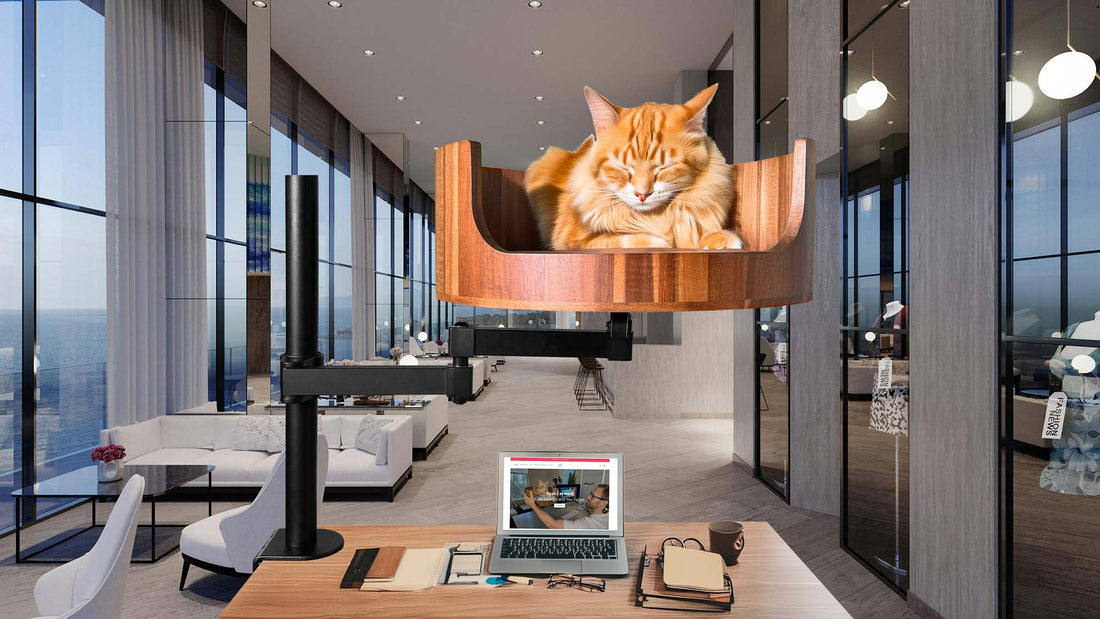
Can My Cat Eat Flies? Understanding Feline Diet Safety
Share
Have you ever caught your cat snacking on a fly that buzzed its way into your home? While it may seem harmless, there are important considerations to keep in mind when it comes to your feline friend's diet and safety. In this article, we will explore whether or not cats can eat flies, and provide insights into what constitutes a safe and healthy diet for your beloved pet.
As natural hunters, cats are instinctively drawn to chasing and catching small prey, including insects like flies. While occasional consumption of flies may not seem like a big deal, it's important to understand the potential risks and benefits of this behavior. We will delve into the reasons behind your cat's interest in flies, the potential health hazards associated with consuming insects, and how to ensure that your cat's diet is balanced and appropriate for their nutritional needs. By gaining a better understanding of feline dietary safety, you can take proactive steps to keep your cat healthy and happy.
- Flies can carry diseases and parasites that can be harmful to your cat, so it is best to prevent them from eating flies.
- Cats may instinctively try to catch and eat flies due to their hunting nature, but it is important to ensure their safety.
- Providing a balanced diet for your cat is crucial to their overall health and well-being.
- Supervising your cat while they play or hunt can help prevent them from consuming harmful insects like flies.
- Consulting with your veterinarian about your cat's diet and any concerns regarding their eating habits is always recommended.
The Dangers of Flies for Cats
Flies can pose a variety of risks to cats if they are consumed. Flies may carry diseases, parasites, or toxins that can make your cat sick. Eating flies can lead to gastrointestinal issues such as vomiting or diarrhea, as well as potential infections from bacteria or parasites. In some cases, flies may have come into contact with pesticides or other harmful substances that could be toxic to cats if ingested.
Supervising Your Cat's Outdoor Activities
If your cat spends time outdoors, it's important to supervise their activities to prevent them from hunting and consuming flies. Consider providing indoor enrichment and play opportunities to keep your cat entertained and stimulated without the need to catch prey. While it may be challenging to completely eliminate the risk of your cat encountering flies outdoors, actively monitoring their behavior can help reduce the chances of fly consumption.
Safe Alternatives for Cat Play and Hunting
To satisfy your cat's natural instincts to hunt and play, consider providing safe alternatives to catching flies. Toys that mimic prey animals or engage your cat's hunting instincts can be a great way to keep them entertained and mentally stimulated. Puzzle feeders, interactive toys, or laser pointers can provide a safe and engaging outlet for your cat's predatory behaviors without exposing them to potential dangers from consuming flies.
Consulting Your Veterinarian
If you suspect that your cat has consumed flies or is exhibiting symptoms of illness after hunting, it's important to consult your veterinarian for guidance. Your veterinarian can provide advice on monitoring your cat's health, potential treatment options if they have ingested harmful substances, and preventive measures to reduce the risk of fly consumption in the future. Regular check-ups with your veterinarian can also help ensure that your cat's overall health and diet are in good condition.
## Frequently Asked Questions
### Can my cat eat flies?
Yes, it is not uncommon for cats to eat flies. Cats are natural hunters and may enjoy chasing and even eating flies as part of their natural instincts.
### Is it safe for my cat to eat flies?
In general, it is safe for cats to eat flies. Flies are not toxic to cats, and many cats enjoy the taste of insects. However, it is important to make sure the fly has not been exposed to any harmful substances such as pesticides before allowing your cat to eat it.
### Are there any risks or health concerns associated with cats eating flies?
While flies themselves are not harmful to cats, there may be potential risks if the fly has consumed a toxic substance. Additionally, flies can carry diseases or parasites that could be harmful to your cat if ingested. It is always best to monitor your cat's behavior and contact your veterinarian if you have any concerns.
### How can I prevent my cat from eating flies?
To prevent your cat from eating flies, you can try using natural fly repellents in your home, such as essential oils or fly traps. You can also make sure to keep windows and doors closed to limit the number of flies that enter your home.
In conclusion, providing your cat with a Desk Cat Bed is a valuable choice to prevent them from eating flies. Not only does the elevated platform offer a comfortable and secure space for your pet to rest and watch for insects, but it also helps to keep them away from potential harm. By investing in a Desk Cat Bed, you can ensure the safety and well-being of your feline companion while also providing them with a cozy and stylish space to call their own.



















































